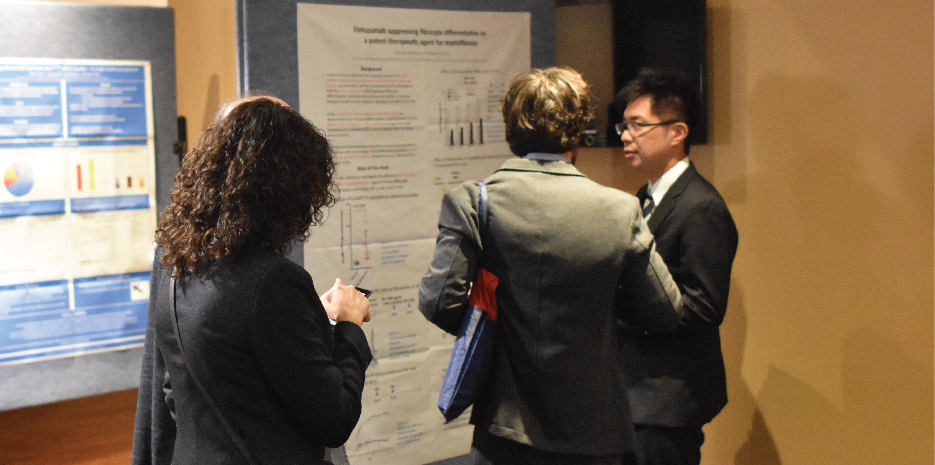This information originally appeared on the previous EHA website. Links to other pages may be inactive.

The EHA-SWG Scientific Meeting on Challenges in the Diagnosis and Management of Myeloproliferative Neoplasms held on October 12-14, 2017 in Budapest, Hungary received a 100% recommendation rating from attendees.
It was both a scientific and clinical meeting, where faculty shared scientific advances allowing debate in areas of controversy with a focus on specific clinical challenges. The meeting was organized in collaboration with SWG chairs Prof Claire Harrison and Prof Jean-Jacques Kiladjian.
Most of the participants attended due to the interesting topics in the program which were:
- Molecular pathogenesis and diagnosis
- State of the art: Novel therapies for MPN
- Indolent MPN
- What’s new in myelofibrosis?
- Use of interferon in MPN
- Mechanisms of resistance to JAK inhibitors
- Patient advocacy in EU
- Prognostic scores in MPN
- Advances in systemic mastocytosis
- Advances in diagnosis and management of CMML
- State of the art: Investigation and management of erythrocytosis
Aside from attending lectures, participants were eager to receive updates in the field. They commended the excellent organization, great location and high level of knowledge shared.
“I want to thank you for the excellent organization and hosting of this meeting. I truly appreciate the opportunity to come to Budapest and present,” said John Mascarenhas from the USA.
“Continue in this type of meetings and keep the high level,” an anonymous delegate added.
Myeloproliferative neoplasms are conditions which are frequently managed outside of the context of super specialist care (i.e. in smaller hospitals and clinics), yet as a disease group they are rare. Thus, practitioners find themselves addressing issues which they may not have encountered with previous patients in the context of scientific advance and fast moving clinical change. The recent advances and changes in clinical practice for diagnosis, and many novel therapeutics advances in the field, also provoke new questions and scenarios. The meeting was set-up to discuss these issues.
Attended by over 120 delegates (excluding faculty) of over 30 nationalities, the meeting was realized through a mix of lectures, interactive cases and panel discussions. Various topics related to the diagnosis and management of MPN were discussed. Presentations were highly interactive receiving a lot of positive feedback.
Considering the number of attendees, MPN proved to be a topic in demand in the field of hematology. The chairs considered this a very successful meeting and are looking forward to hosting the next one.
The meeting was organized with the main support of EHA and unrestricted educational grants provided by Novartis, AOP Orphan, Janssen and Incyte.
EHA would like to thank the chairs, the scientific program committee, the faculty and the case presenters, and sponsors for their invaluable contribution to this excellent meeting.